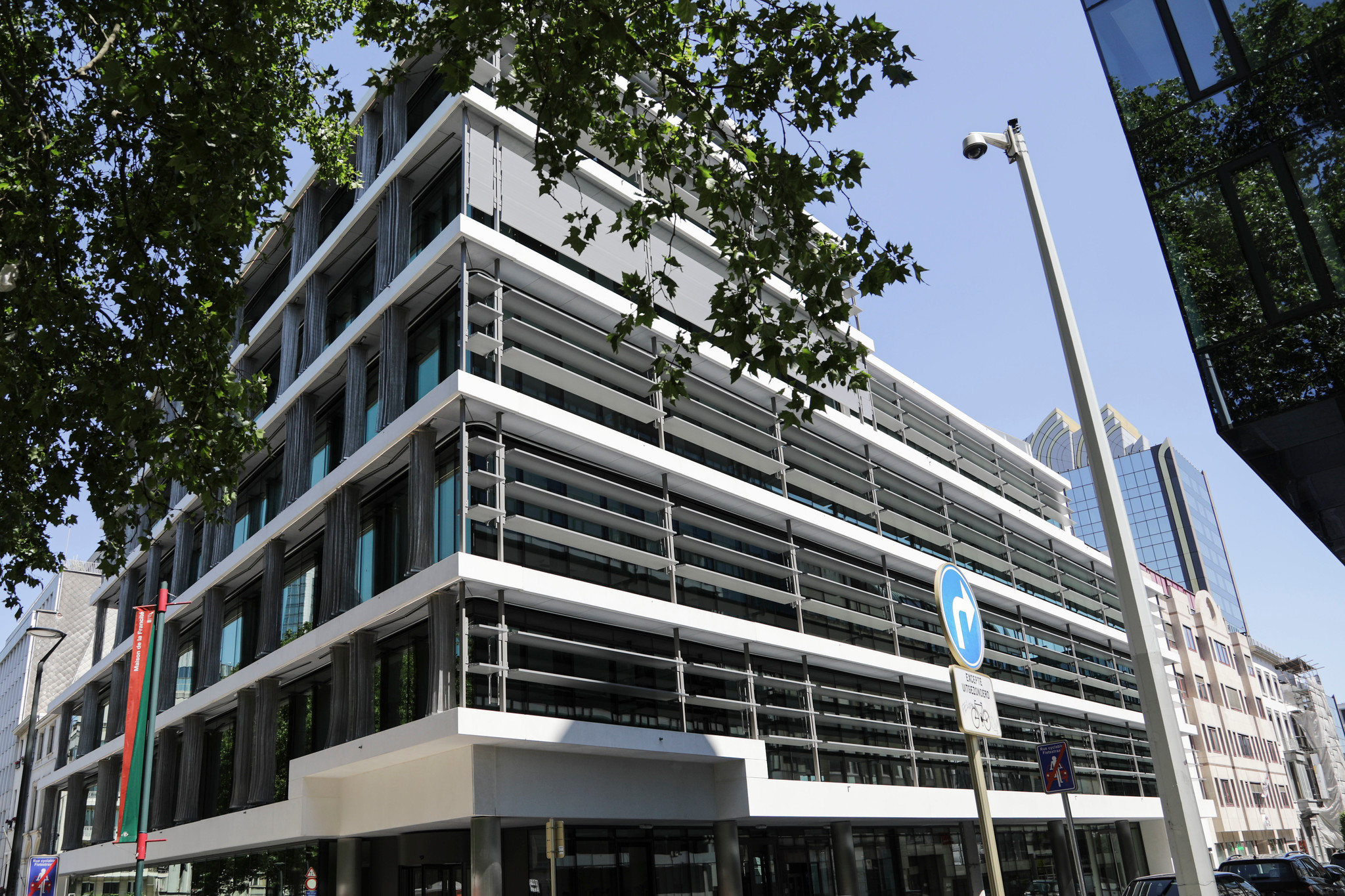- 53rd EEA Council meeting
-
Representatives for the EEA/EFTA countries and the EU gathered for the 53rd EEA Council at the new EFTA House in Brussels on 24 November 2021. From left, Anniken Huitfeldt, Norway’s Minister for Foreign Affairs; Pascal Schafhauser, Ambassador of the Principality of Liechtenstein; and Krisján Andri Stefansson, Ambassador, Head of Mission of Iceland to the EU. Zdravko Počivalšek, Slovenia’s Minister for Economic Development and Technology, co-chaired the session on behalf of the Presidency of the Council of the European Union.
- The new EFTA House
-

Photo: EFTA secretariat
While in Brussels for the EEA Council, Norway’s Minister for Foreign Affairs Anniken Huitfeldt also officially opened the EFTA House. The building, centrally located in Brussels, houses the EFTA secretariat, the EFTA Surveillance Authority (ESA) and since March also the Financial Mechanism Office (FMO).
“Moving into a single building housing will allow for cost-cutting benefits and further synergies between the three organisations’ more than 230 staff members concerning the functioning and the promotion of the EEA Agreement, to the benefit of the EEA EFTA States and their citizens,” wrote the ESA in a press release.
- EFTA, EEA and EU
-
EFTA: The European Free Trade Association (EFTA) was established in 1960 to promote free trade and economic integration between its member states (now Iceland, Liechtenstein, Norway and Switzerland), within Europe and globally. Unlike the EU, EFTA does not envisage political integration, issue legislation and did not establish a customs union.
EEA: The European Economic Area (EEA) was established by the EEA Agreement in 1994. It allows Norway, Iceland and Liechtenstein to access the EU internal market, creating a homogeneous European Economic Area. Today the EEA is made up of the 27 EU member states plus Norway, Iceland and Liechtenstein. Switzerland is not an EU or EEA member but is part of the single market.
EU: The European Union (EU) is an economic and political union of 27 countries. It operates an internal market which allows for the free movement of goods, capital, services and people between member states. It has so far been enlarged eight times – in 1973, 1981, 1986, 1990 (German reunification), 1995, 2004, 2007 and 2013. The UK withdrew in 2020.
 Follow us on Facebook
Follow us on Facebook
